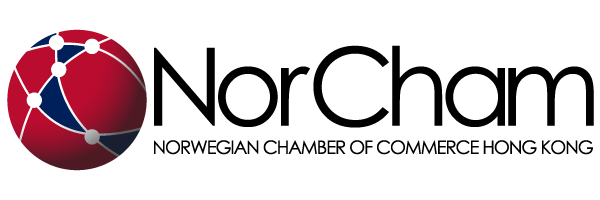If you are considering setting up, relocating or expanding your business in Asia, why should you choose Hong Kong?
Hong Kong has a long history of international business, having been a British crown colony from 1842 to 1997. In 1984 it a was decided that it was to return to Chinese rule when Great Britain’s lease on the New Territories district (a northern district of Hong Kong) expired in 1997. To avoid the colony being split up or becoming immediately subject to communist rule, the British and Chinese governments negotiated a special status for Hong Kong under the principle of “one country – two systems”. A new constitution – Hong Kong’s Basic law – was ratified in 1990, stating that Hong Kong's capitalistic system of business and government shall be retained for 50 years (until 2047).
In the period from 1984 to 1997 there was great uncertainty whether China would honor this deal and a large number of Hong Kong citizens (and some companies) moved to Canada, the US, Australia and other Asian cities such as Singapore. China however, honored the arrangement and within a few years many people and businesses returned to Hong Kong. With the spectacular rise of opportunities offered in China today, Hong Kong is a thriving international city with a unique position that allows it to benefit as a part of China but with its own judiciary, financial, monetary and educational system. In this way, Hong Kong embodies its slogan as being "Asia’s World City".
When looking at where to set up your business or professional life, consider these very important factors in Hong Kong.
Economy and finance
- A leading financial system, currently rated as the 3rd largest financial center in the world.
- World's freest economy 16 years running (annual index of economic freedom, The Heritage Foundation and Wall Street Journal)
- 69 of the world's largest banks are represented in Hong Kong
- World's 6th largest foreign exchange center, with the free exchange of capital and currencies
- Largest number of IPO’s in the world
- Worlds 4th busiest airport
- One of the worlds largest container terminals
Independent and strong legal system
- Hong Kong's legal system, based on British Common Law, is a bastion for rule of law for individuals and corporations.
- All business contracts as well as Intellectual Property rights are covered by internationally accepted law practices.
- The court of final appeal has at least one visiting judge from the UK supreme court, the High Court of Australia or other supreme courts under the Common Law.
- All major law firms from the US and Europe have an office in Hong Kong.
- Hong Kong is an important global and regional arbitration center.
- Strong stance against corruption: Hong Kong’s Independent Commission Against Corruption (the "ICAC") is a unique success story and is used as an example for other countries. Transparency International’s corruption index rated Hong Kong 12th globally, right behind Norway.
Freedom of press and academia
- Freedom of speech and press is protected by Hong Kong’s basic law and no censorship is enacted. More the 40 newspapers, 700 magazines and 130 media organisations including all the leading international media are represented in Hong Kong.
- Three of Hong Kong’s Universities are rated among the top 50 in the world and among the top 4 in Asia:
- Hong Kong University
- City University of Hong Kong
- Hong Kong University of Science and Technology
- More than 50 international schools (primary and secondary) exist to support an active expatriate community. Many of these schools have received international accolades for the high quality of their education.
Gateway to China and Center of Expertise on China
Hong Kong’s strong economic position is of course, as it has always been, largely due to its close relations with China.
- Over 40% of the investments in China made since Deng Xiaoping introduced China's "Open Door" policy have originated in Hong Kong.
- Half of the ~120,000 factories in the Pearl River Delta area are owned by Hong Kong interests.
- The free trade agreement CEPA between Hong Kong and China allows for free trade flows of 1500 product categories and 42 sectors of services.
- Hong Kong is the first market outside mainland China that has been allowed to trade in Chinese currency (RMB) and where businesses can have capital in RMB.
- Hong Kong is the primary stepping stone market for Chinese companies that want to expand internationally.
In short, Hong Kong's mission has been to be the leader in international transparency and business practices, access to the myriad of opportunities in China and Asia, and a vibrant environment for the expatriate community.
